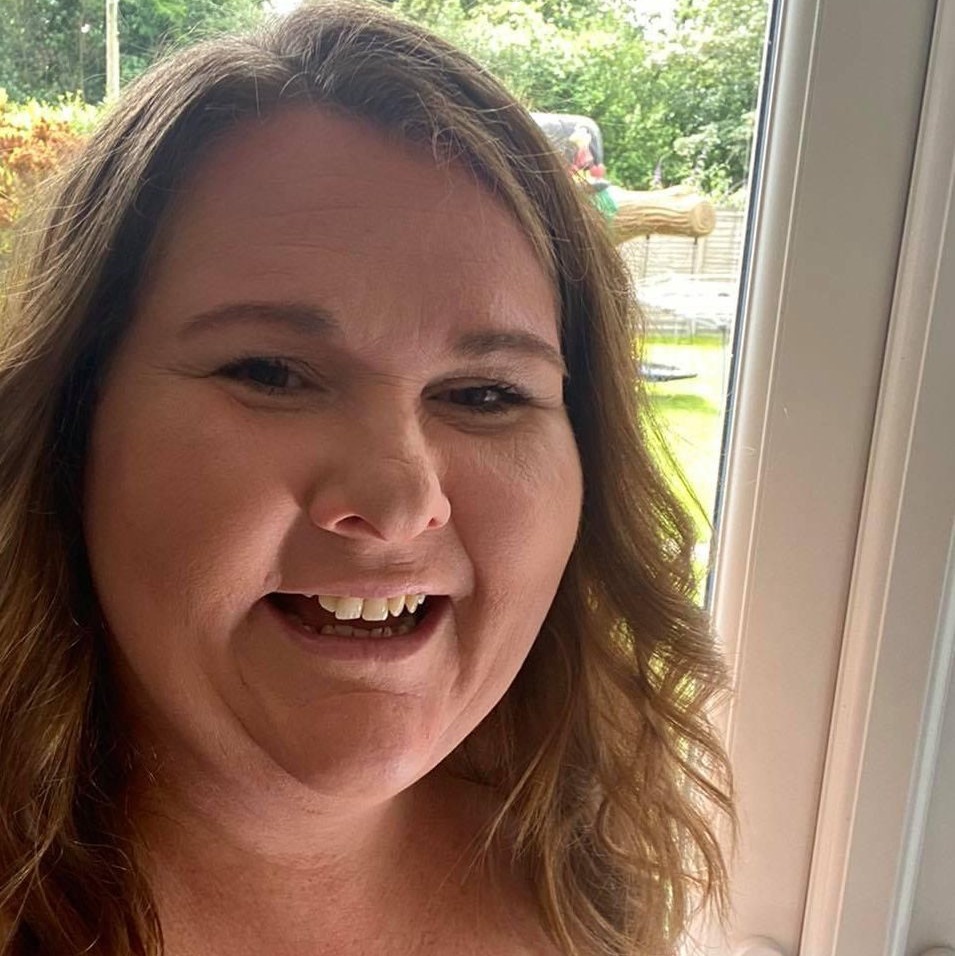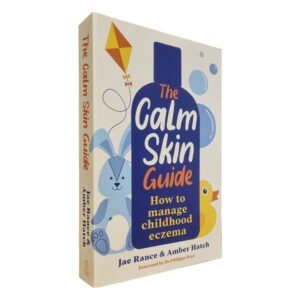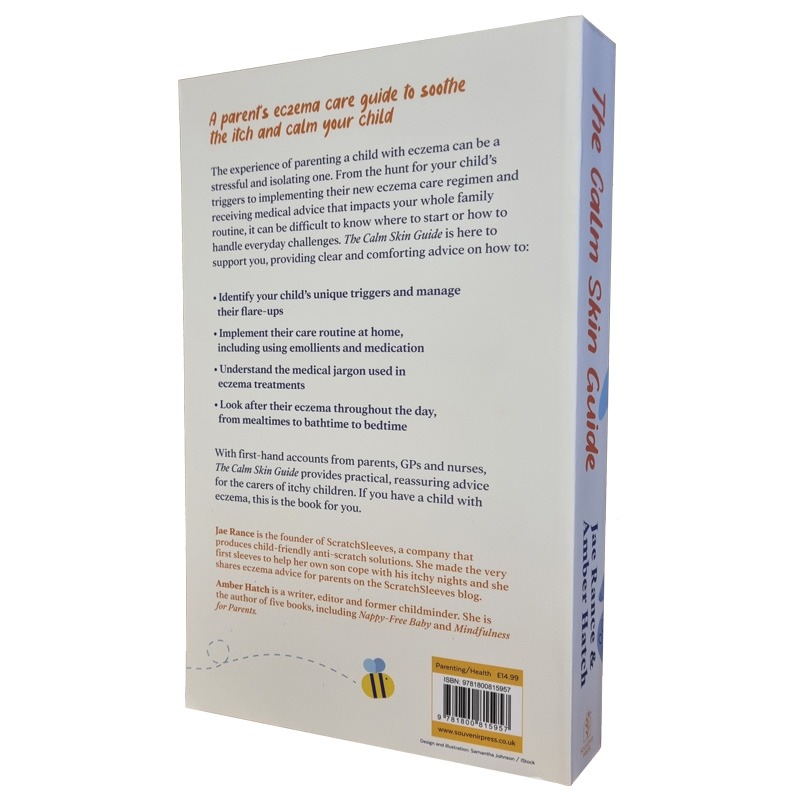Eczema and sleep issues through the ages



Here at ScratchSleeves we love collaborating to bring you the experience and expertise of professionals and parents. This time we have teamed up with early years professional, sleep consultant and eczema mum, Kirsty Irving. We can’t think of a better person to be sharing top tips on helping an eczema child to sleep. Not only does Kirsty have eczema herself, so do her two children, Emily (7) and William (2). It was Emily’s struggles with itch-disturbed sleep that motivated Kirsty to train as a sleep consultant. In this article we look at how both eczema and sleep issues vary as babies and children get older. More importantly, we also look at what you can do to help your eczema child to sleep better.
Eczema and sleep issues in younger babies (0-6 months)
Eczema typically starts to appear at around 4 months. Independently, sleep issues also commonly occur at the same age. Even though the two issues can appear within days of each other, they are not necessarily related.
Sleep issues at this age are typically linked to sleep environments (not dark enough, too hot/cold/noisy). The main reason for this is that children’s sight becomes a lot better around this time. Before this they have only been able to see objects less than a metre away. Now there is so much more to see and take an interest in. Babies will start looking towards the sounds they can hear to see what is going on. White noise can be a really useful tool as it muffles sounds and keeps a baby’s audible environment more consistent. It’s also important to make sure that your child’s room is dark enough to reduce visual distraction. As a guide you’re aiming for around 8 out of 10, where 1 is daylight and 10 is pitch black.

Sleeping challenges for older babies with eczema (6-12 months)
This is when baby eczema is typically at its worst. Parents new to eczema are often struggling to get to grips with treatments and eczema babies struggle to sleep through the night. Getting enough sleep can challenging for the entire family.
Wake windows change a lot over these six months. This means that any routines that you get into are likely to be short lived. Understanding and working with wake windows will really help you to timing naps and bedtime so that your baby has the best chance of settling and sleeping well. You can read more about wake windows here.
Toddler sleep issues with eczema (12-24 months)
At this age children develop a huge curiosity for the world at this age and suffer from FOMO, often causing sleep resistance and overtiredness. Baby eczema often starts to resolve naturally around this time. Even if your child’s eczema isn’t clearing up of its own accord, there’s a good chance that you are starting to get to grips with the various treatments.
Now, disturbed sleep is just as likely to be due to your child not wanting to miss out on things as it is to be due to itching. Little ones learn fast. If they learn that they can get more attention for you (and therefore not miss out) by scratching, they will scratch.
Of course, you have to assume that their eczema is indeed bothering them. Just try to keep stimulation to a minimum while you deal with the issue. Meet their needs, but don’t exceed them. Keep the lights as dim as possible. If you need to apply creams, try to have them at body temperature or only just below. Don’t communicate (talking or eye contact) and, if you can bear it, no cuddles. Although the world is so exciting to them, it is still essential for their bodies to get their much needed sleep to function effectively. You can read more about the perils of exceeding the needs of an eczema child here.
Eczema and sleep in younger pre-schoolers (2-3 years)
Allowing eczema children to explore their creams in sensory play can be useful in helping them to understand this part of their bedtime routine. Do this during the day when you’ve got plenty of time to clear up the inevitable mess.
Between 2½ years and 3 is when you would think about moving from a cot to a cot bed or bed, as this is when they are cognitively able to understand that they need to stay in bed overnight. As eczema children typically wake up more frequently in the night, you are going to need to set very clear boundaries about staying in their bed when they wake up in the night. This will be easier if you have managed to stick to just meeting their needs (see above) when they have woken up in the night before you move them to a bed. Sticker charts can be useful here. As before, when you do need to step after bedtime, keep stimulation to a minimum and try not to communicate. Meet your child’s needs, don’t exceed them.
Sleep challenges in pre-schoolers with eczema (3-4 years)
This is when you can start encouraging your eczema child to apply their creams themselves. It doesn’t need to be much and it should be fun and give them some agency over their treatments. This will give them the skills and confidence to start applying their own creams when they wake up in the night. You will know when your child is ready to start doing this, it may not be just yet. Children often find small tubes easier to manage than the big pump dispensers. Your GP should be happy to prescribe ‘handbag’ sized tubes of their regular emollients.
By now your child should be starting to understand that scratching can make things worse in the long run. This is the time to start teaching scratch avoidance techniques like tapping or patting the skin, cold compresses, using scratch mittens to minimise damage or just kicking off the covers and turning the pillow over. Read more tips here. These techniques will help your child to start to cope with night-time itching without needing to find adult help.
At this age, children are starting to not nap during the day, so you’ll likely need to bring bedtime a little earlier in the evenings to avoid overtiredness.
Sleep and eczema for 4-5 year olds
By now your child should be able to try applying their own creams during the night if needed. It can get messy but it’s worth it in the long term. If dealing with tubes is too much you can try putting a dollop of cream on a saucer in easy reach. If it’s not been used, throw it away in the morning.
At this age, positive language can really support a child’s mental wellbeing and is quite often the first thing for us, as tired parents, to forget. For example “You get to go to bed” sounds much more inviting than “you’ve got to go to bed”.
Further Reading
- Eczema and sleep: Expert sleep tips for eczema babies and children
- Importance of sleep for eczema babies and toddlers
- How to get an eczema child to sleep
- Eczema and sleep: A sleep toolkit for eczema children
- Eczema and sleep: A parent’s (eventual) success story
If you want more details of Kirsty Irving’s work as a sleep consultant head over to her website where you’ll find contact details, links to social media channels and more tips on helping children to develop good sleep habits.
Here at ScratchSleeves, we don’t just share our experience of bring up an eczema child, we also sell our unique range of stay on scratch-mitts and eczema sleepwear in sizes from 0 to adult. Visit our webshop for more information
The Calm Skin Guide
Love our blog? It's also available in book format with:
- First hand accounts from parents & medical professionals
- Easy navigation
- Comprehensive index
- Additional material
Signed copies available at no extra cost

Written by:
Reviewed by:
Interesting article? Don't keep it to yourself...
Read next...
You may also find helpful...
Quick buy


Multi Buy Discount

Spend between £30 - £60 and save 5%
Spend between £60 - £120 and save 10%
Spend over £120 and save 15%
Discount automatically applied at checkout
No Quibbles Guarantee

ScratchSleeves abide by a no quibbles guarantee.
Free UK Postage

Free packing and postage on all UK orders. For overseas orders to Europe postage is from £3.50, to USA is £6.50 and to the rest of the world, from £3.75.






